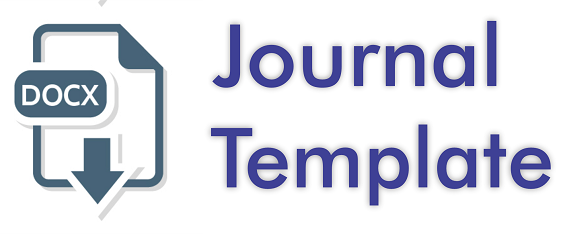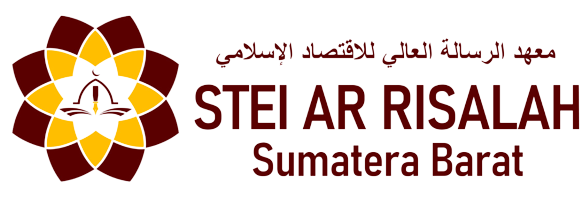Optimizing the Role of Waqf in Sustainable Development through an Islamic Education Perspective: A Comprehensive Literature Study
Keywords:
Optimizing the Role of Waqf, Sustainable Development, Islamic Education Perspective, Optimizing the Role of Waqf, Sustainable Development, Islamic Education Perspective, Comprehensive Literature StudyAbstract
The role of waqf (Islamic endowment) in fostering sustainable development has garnered increasing attention in recent years. This study aims to explore the optimization of waqf in sustainable development through the lens of Islamic education. Utilizing a comprehensive literature review methodology, this research synthesizes findings from various academic sources, including journal articles, books, and reports, to understand the multifaceted contributions of waqf. The study highlights the historical significance of waqf in socio-economic development and examines contemporary practices and challenges. It emphasizes the potential of Islamic education in enhancing the awareness, management, and strategic utilization of waqf assets. The findings suggest that integrating Islamic educational principles with modern developmental strategies can significantly enhance the efficacy of waqf in addressing current socio-economic issues. This research offers valuable insights for policymakers, educators, and stakeholders in the waqf sector, advocating for a more structured and informed approach to leverage waqf for sustainable development.
Downloads
References
A., Kh., B. (2022). Sustainable development of states and societies in the context of global world processes. Alʹ-Farabi, 77(1), 90–101. https://doi.org/10.48010/2022.1/1999-5911.07
Abiba, R. W., & Suprayitno, E. (2023). Optimalisasi Wakaf Produktif dalam Mendukung Upaya Pencapaian SDGs Melalui Pemberdayaan Peternakan. Al-Intaj: Jurnal Ekonomi Dan Perbankan Syariah, 9(1), 109–123.
Admin, P. (n.d.). Sustainable Development. 239–251. https://doi.org/10.1016/b978-0-12-820195-4.00081-9
Akbarova, Marziya, Akbarjon, Q. (2022). Sustainable Development. 419–422. https://doi.org/10.4324/9781003286202-91
Amanda, M., C. (n.d.). Vakif kültürü ve mevli̇d. 73–100. https://doi.org/10.53478/tuba.978-625-8352-50-4.ch04
Asdlori. (n.d.). Pendidikan Islam Sebagai Pilar Pembangunan Berkelanjutan: Peran Sistem Pendidikan Pesantren. 124–130.
Baryalai, Baryal., Mahmood, Mehraaein., Ghazi, P. (2022). The Role of Cash Waqf Model in Education Development- Evidence from Afghanistan. Integrated Journal for Research in Arts and Humanities, 2(6). https://doi.org/158-163. doi: 10.55544/ijrah.2.6.21
Daho Muhammad, Faqiqi Saad, S. A. (2018). Waqf instruments and their role in investing cash waqf. تاساردلاو ثوحبمل فاليم ةمج, 4(1), 301–317.
Emanuel, D. (2022). Analysis of the Application of Waqf Core Principle in Risk Management Case Study: the Waqf Maintenance and Development Foundation of Pondok Modern Darussalam Gontor. Al-Awqaf, 15(2), 44–60. https://doi.org/10.47411/al-awqaf.vol15iss2.162
Guanlong, Li., Yueqing, L. (2019). Chinese Pinyin Input Method in Smartphone Era: A Literature Review Study. https://doi.org/10.1007/978-3-030-22660-2_3
Habibulloh, Hara, A. E., Sidiq, M., & Prayitno, H. (2023). The Existence and Governance of Waqf in Creating Public Value at Pondok Pesantren Darussalam Blokagung Banyuwangi. International Journal of Science and Society, 5(3), 111–124. https://doi.org/10.54783/ijsoc.v5i3.720
Hara, S. O., & Naicker, S. (2022). Local Commitment and Global Reach : Advancing Sustainable Capacity Building in Higher Education. 783–801.
Hasyim, A. A., & Jinan, M. (2023). Islamic Perspective on Environmental Sustainability Educational Innovation : A Conceptual Analysis. 6, 4654–4659.
Ikhsanuddin, Ikhsanuddin., Syafuri, Bai., Masykuroh, N. (2022). Peran Wakaf dalam Perluasan Aset Pendidikan dan Pemberdayaan Ekonomi Umat di Wilayah Kecamatan Kasemen Kota Serang Provinsi Banten (Studi di Badan Wakaf Indonesia Kota Serang Provinsi Banten). 7(1), 20–34. https://doi.org/10.32678/tsarwah.v7i1.6565
Islamic Sustainable Development Theories and Their Intellectual Role in Developing Education during Pandemics. (2022). https://doi.org/10.22452/afkar.sp2022no1.7
Larasati, Nur, Kharomah., Achyar, Zein., Syafruddin, S. (2023). Implementation of Waqf Management in The Development of Islamic Education. Munaddhomah, 3(3), 241–254. https://doi.org/10.31538/munaddhomah.v3i3.281
Michael, C., Farmer., Alan, R. (2016). Policies for Sustainability: Lessons from an Overlapping.
Miftah, F. (2023). Principles of Islamic Education Management. JIM: Jurnal Ilmiah Mahasiswa Pendidikan Sejarah, 8(2), 319–324. https://doi.org/10.24815/jimps.v8i2.24643
Moh, N. (2023). Development Model of Productive Islamic Endowment Fund (Waqf) Management at Walisongo Pecangaan Jepara Foundation. Ijtimā’iyya, 8(1), 1–10. https://doi.org/10.24090/ijtimaiyya.v8i1.5917
Mohd Zakhiri MD Nor, A. M. M. (2023). Waqf in Medieval Islam: an Overview. Russian Law Journal, 11(4s), 38–44. https://doi.org/10.52783/rlj.v11i4s.801
Mulugeta, B. (2020). Natural Resource Endowment and Sustainable Development Linkage in Ethiopia. Journal of Resources Development and Management, 63, 15–23.
Nurul, Fatma, Hasan., Syahruddin, S. (2022). Enhancing Green Waqf For Carbonization Technology: Opportunities for Sustainable Development Goals (SDGs) in Indonesia. El Barka, 5(2), 235–251. https://doi.org/10.21154/elbarka.v5i2.4739
Omar Kachkar, Alfares, M. (2022). Waqf Sukuk as Instruments of Sustainable Development and Challenges of Issuing Them A Field Study in Malaysia. GJAT, 12(2), 184–205.
Saidon, R., & Azam, A. A. M. (2023). A Case Study of Waqf Fund in Tertiary Education. Business and Management Horizons, 11(2), 25. https://doi.org/10.5296/bmh.v11i2.21033
Saima, Nawaz., Zahida, Habeeb., Amber, J. (2022). Sustainable development and islam: content analysis of higher education curriculum. Journal of Social Research Development, 3(2), 297–310. https://doi.org/10.53664/jsrd/03-02-2022-13-297-310
Sevara, F. (2023). Land, Waqf, Ma’tam, and the Moral Economy. 37–74. https://doi.org/10.1093/oso/9780192874672.003.0002
Shafinar Ismail, M. Hassan, S. R. (2023a). Introduction to Islamic Social Finance. Islamic Social Finance, 1–4.
Shafinar Ismail, M. Hassan, S. R. (2023b). The concept of waqf. Islamic Social Finance, 1–13.
Sultan, U., & Abidin, Z. (2022). LITERATURE STUDY : LEADERSHIP STYLE PRINCIPALS. 01(01), 1–8.
The Commitment of Waqf Institutions to Apply the Governance Principles and the Factors Affecting Them in Saudi Arabia. (2022). 51–73. https://doi.org/10.1007/978-3-031-08090-6_3
The role of waqf in sustainable economic development. (2023). 14–34. https://doi.org/10.4337/9781803929804.00010
The sustainable use of natural endowments. (2022). OECD Development Pathways. https://doi.org/10.1787/2e8f2ff8-en
Translating Global Goals to Local Contexts. (2022). 41–56. https://doi.org/10.1108/978-1-80043-798-220220004
Tumewang, Y. K. (2018). Can Yale Endowment Model be Applied for Ismalic Pension Fund? Journal of Islamic Monetary Economics and Finance, 3, 99–124.
Umar Farhan, Hani Hazag, ’Aznan Hasan. (2020). The development of governance principles for Waqf Institutions in line with the corporate governance principles. Journal of Islam in Asia, 17(2), 5–24.
Wijaya, B. S., Cahyani Muis, A. R., Rokhaniyah, H., & Noveri, A. P. (2023). Implementasi Sistem Wakaf Sebagai Pilar Pembangunan Sosial Dan Pertumbuhan Ekonomi Berkelanjutan Di Yordania. Jurnal Dinamika Global, 8(01), 160–175. https://doi.org/10.36859/jdg.v8i01.1621
Yayat Supriyadi, Safuri, Anis F., Yogi D.S., D. I. (2023). The Role of Transformation of Islamic Religious Universitis in Improving the Quality of National Education. Jurnal Ilmiah Untuk Peningkatan Mutu Penddikan, 10(1), 40–48. https://doi.org/10.21009/improvement.v10i1.36558
Yuliansyah, Y. (2016). Meningkatkan response ratepada penelitian surveysuatu study literature.
Zaenal, A. (2022). Management of Islamic Religious Education (PAI) To Form Social Piety In Private Universities. 1(2), 64–71. https://doi.org/10.58631/injurity.v1i2.11
Zawawi, Zawawi., Yuli, Yasin., Muhammad, Helmy., Agus, A. (2023). Waqf and sustainable development law: models of waqf institutions in the Kingdom of Saudi Arabia and Indonesia. https://doi.org/10.18326/ijtihad.v23i1.93-114
Zhang, H., Chen, H. H., Lao, K., & Ren, Z. (2022). The Impacts of Resource Endowment , and Environmental Regulations on Sustainability — Empirical Evidence Based on Data from Renewable Energy Enterprises.
wakaf uang di indonesia. 2(1), 27–36.
Syaifullah, H., Idrus, A., Muttaqien, M. K., Zuhra, A., & Diah, A. (2023). Pengelolaan dan Pengembangan Wakaf Produktif : Studi Interkoneksi Bank Umum Syariah ( BUS ) dengan Lembaga Filantropi Islam. 4(2).
Syariah, P. E., & Fitrianto, A. R. (2023). Social Intrepreneurship Sebagai Gagasan Inovasi Sosial Bagi Pembangunan Perekonomian Masyarakat Berdasarkan. 9(01), 715–725.
Urfiyya, K. (2021). DIGITAL SYSTEM BLOCKCHAIN SEBAGAI STRATEGI UNTUK OPTIMALISASI PENGELOLAAN DANA ZAKAT : STUDI. 17(02), 83–95. https://doi.org/10.23971/jsam.v17i2.3157
Zoni, A., & Mubarok, S. (2020). Prospek Nazhir Wakaf Global Berbasis Pesantren di Era Digital Nazhir Prospect of Global Waqf Based on Pesantren ( Islamic Boarding Schools ) in the Digital Era. 13(1).
Downloads
Published
Issue
Section
License
Copyright (c) 2024 RISALAH IQTISADIYAH: Journal of Sharia Economics

This work is licensed under a Creative Commons Attribution 4.0 International License.
License
The non-commercial use of the article will be governed by the Creative Commons Attribution license as currently displayed on http://creativecommons.org/licenses/by/4.0/. This licence allows the user to distribute, remix, tweak, and build upon the licensed work, including for commercial purposes, as long as the original author is credited.
Author’s Warranties
The author warrants that the article is original, written by stated author/s, has not been published before, contains no unlawful statements, does not infringe the rights of others, is subject to copyright that is vested exclusively in the author and free of any third party rights, and that any necessary written permissions to quote from other sources have been obtained by the author/s.
User Rights
Under the Creative Commons Attribution license, the author(s) and users are free to share (copy, distribute and transmit the contribution).
Rights of Authors
Authors retain the following rights:
- copyright, and other proprietary rights relating to the article, such as patent rights,
- the right to use the substance of the article in future own works, including lectures and books,
- the right to reproduce the article for own purposes, provided the copies are not offered for sale,
- the right to self-archive the article.
Co-Authorship
If the article was prepared jointly with other authors, the signatory of this form warrants that he/she has been authorized by all co-authors to sign this agreement on their behalf, and agrees to inform his/her co-authors of the terms of this agreement.
Termination
This agreement can be terminated by the author or RISALAH IQTISADIYAH: JOURNAL OF SHARIA ECONOMICS upon two months’ notice where the other party has materially breached this agreement and failed to remedy such breach within a month of being given the terminating party’s notice requesting such breach to be remedied. No breach or violation of this agreement will cause this agreement or any license granted in it to terminate automatically or affect the definition of RISALAH IQTISADIYAH: JOURNAL OF SHARIA ECONOMICS.
Royalties
This agreement entitles the author to no royalties or other fees. To such extent as legally permissible, the author waives his or her right to collect royalties relative to the article in respect of any use of the article by RISALAH IQTISADIYAH: JOURNAL OF SHARIA ECONOMICS or its sublicensee.
Miscellaneous
RISALAH IQTISADIYAH: JOURNAL OF SHARIA ECONOMICS will publish the article (or have it published) in the Journal, if the article’s editorial process is successfully completed and RISALAH IQTISADIYAH: JOURNAL OF SHARIA ECONOMICS or its sublicensee has become obligated to have the article published. RISALAH IQTISADIYAH: JOURNAL OF SHARIA ECONOMICS may conform the article to a style of punctuation, spelling, capitalization and usage that it deems appropriate. The author acknowledges that the article may be published so that it will be publicly accessible and such access will be free of charge for the readers. RISALAH IQTISADIYAH: JOURNAL OF SHARIA ECONOMICS will be allowed to sublicense the rights that are licensed to it under this agreement.


.png)
.png)






